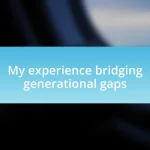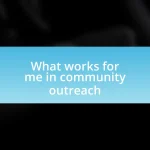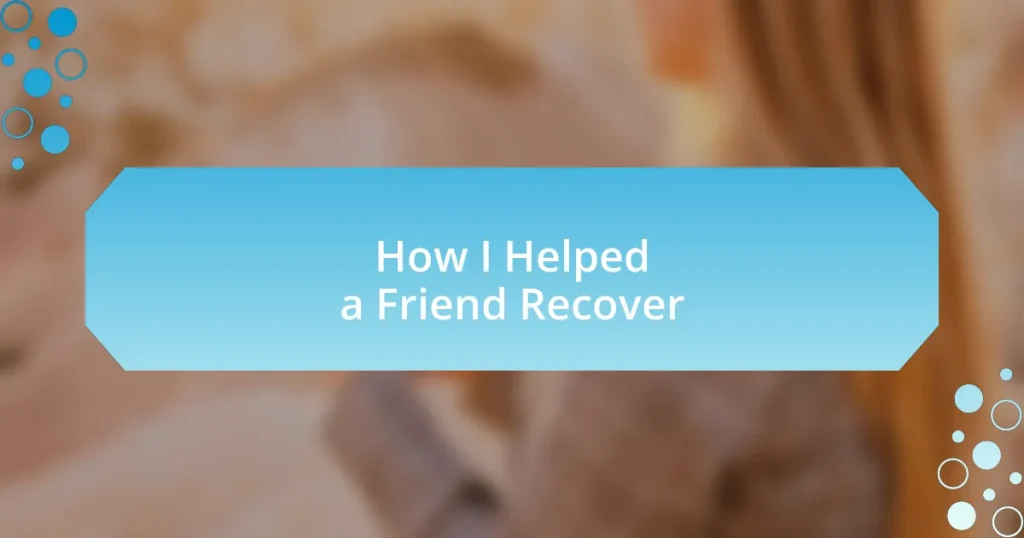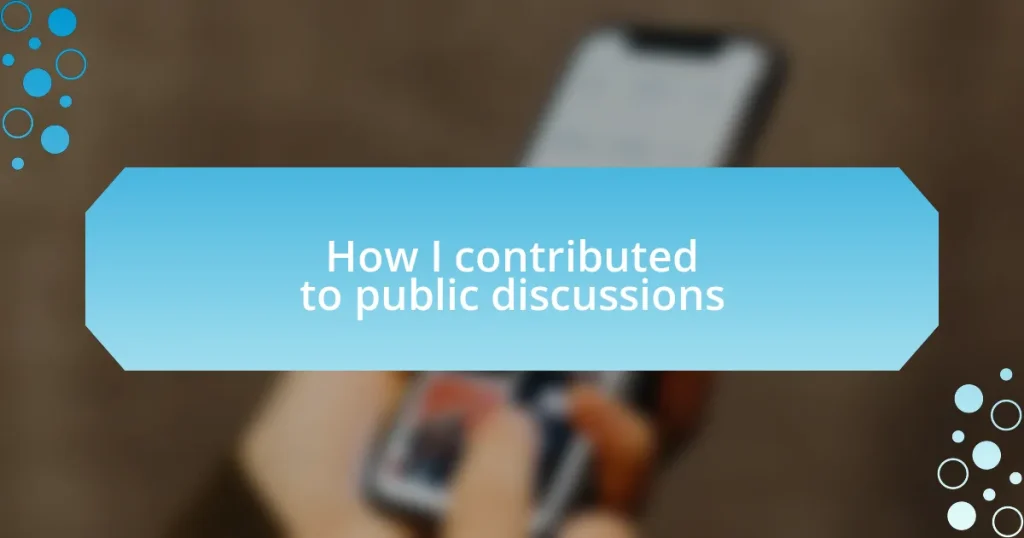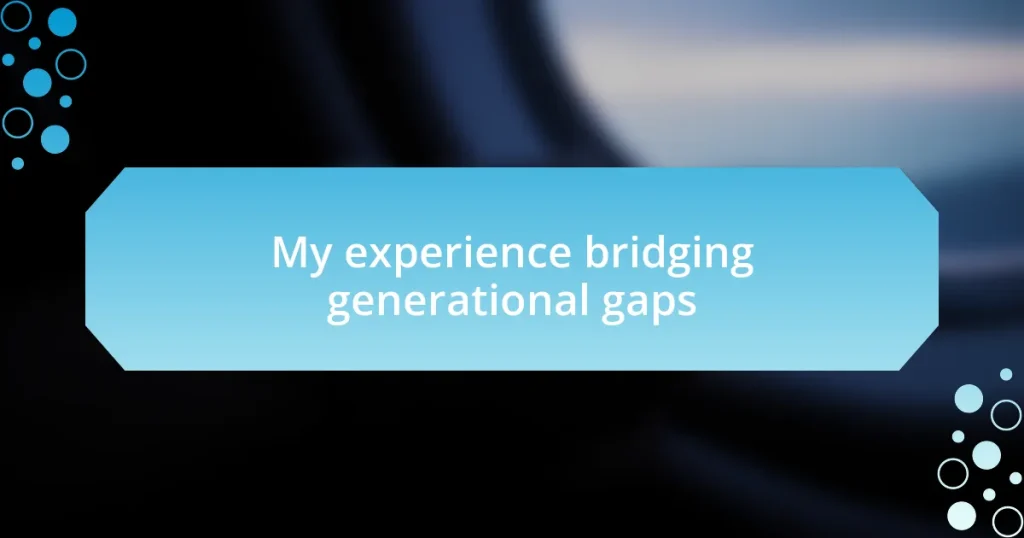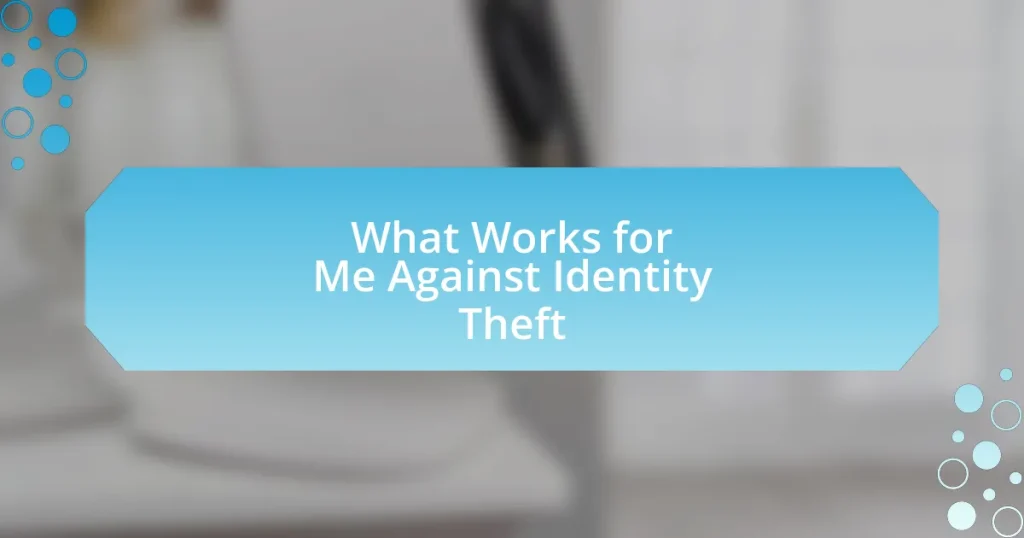Key takeaways:
- Creating a safe space for open conversation allows friends to uncover hidden struggles and fosters emotional connection.
- Assessing recovery approaches involves considering personal preferences, support systems, and tracking progress to empower individuals.
- Celebrating small victories together strengthens motivation and reinforces a sense of community in the recovery journey.
- Building a support network, including friends and family, enhances the recovery process by providing emotional encouragement and shared experiences.
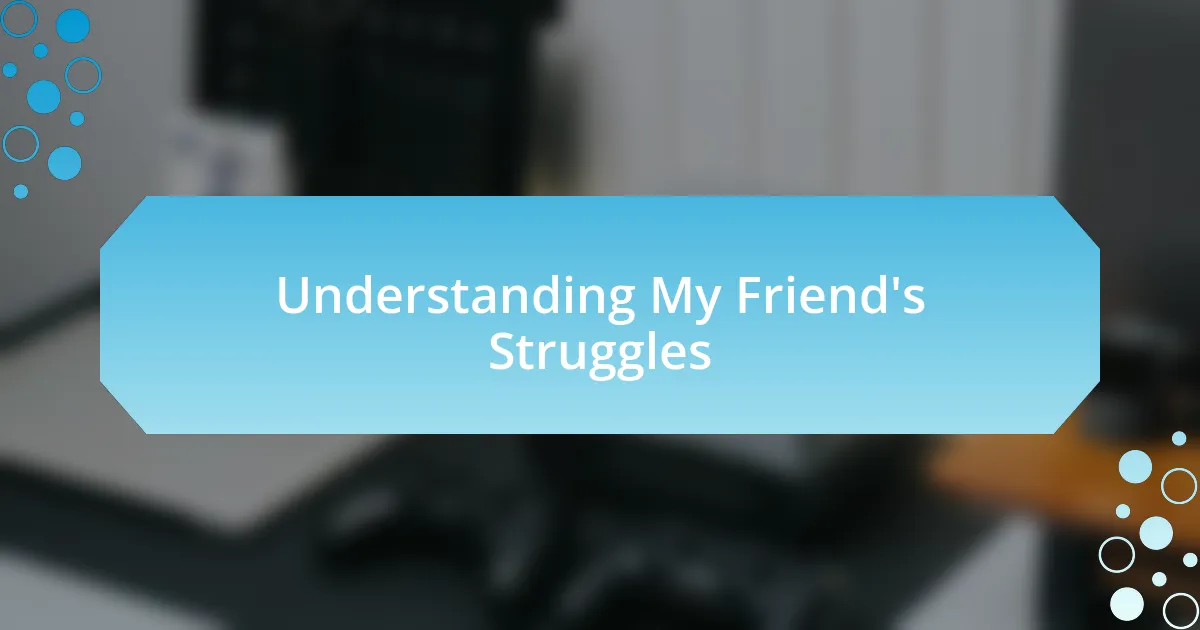
Understanding My Friend’s Struggles
When I first learned about my friend’s struggles, I felt a mix of concern and helplessness. It was hard to see someone I cared about grappling with issues that seemed to drain their spark. How many times have we felt powerless while watching a friend go through tough times?
I remember one evening when we sat together in silence, and I could feel the weight of their worries in the air. It struck me how mental health sometimes feels invisible, festering beneath the surface while friends wear smiles. Have you ever noticed how a simple conversation can uncover a friend’s hidden battles? I began to appreciate how crucial it is to create a safe space for expressing vulnerabilities.
As I delved deeper into understanding their experience, I discovered it wasn’t just about the visible struggles but also the unspoken fears and doubts. My friend often shared how anxiety clouded their daily life, making even simple tasks feel monumental. I found myself asking, “What can I do to ease that burden?” This question pushed me to engage more actively, helping them recognize their strength in overcoming daily hurdles.
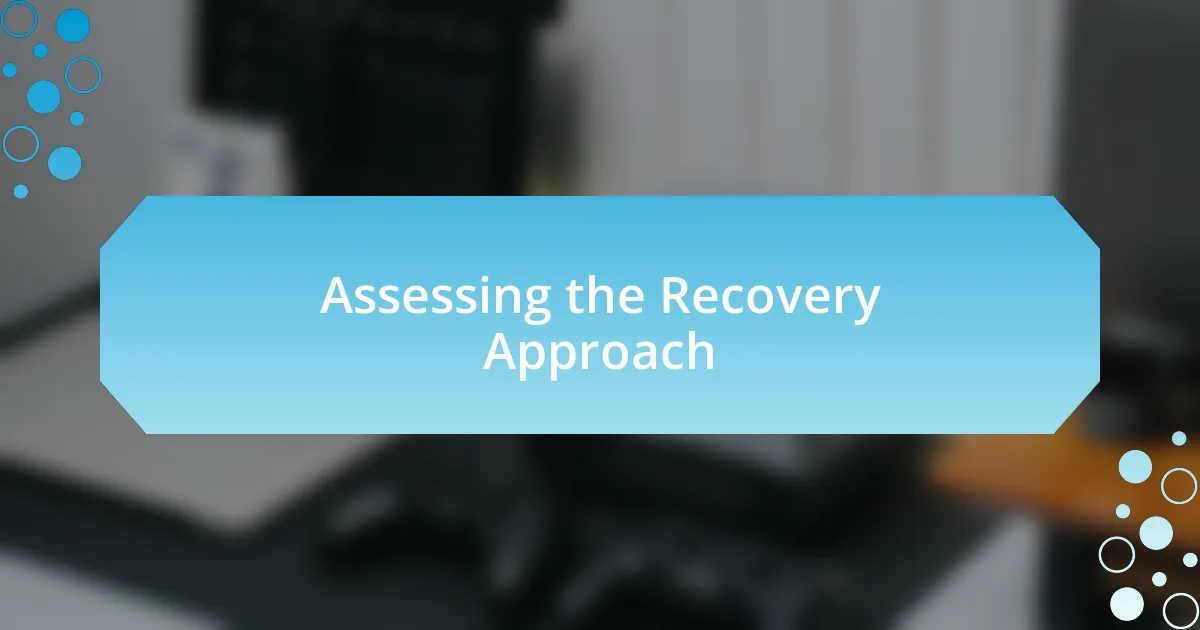
Assessing the Recovery Approach
When evaluating the recovery approach, I had to consider not just my friend’s immediate needs but their long-term well-being. I remember a moment when we were discussing potential therapy options, and my friend expressed skepticism. Seeing that doubt in their eyes inspired me to focus on approaches that would resonate with them personally, rather than adopting a one-size-fits-all mentality.
To effectively assess the recovery approach, I focused on these key aspects:
- Personal Preferences: Gauging what types of activities my friend found enjoyable and comforting.
- Support Systems: Identifying who in their life could offer additional encouragement, from family to mutual friends.
- Progress Tracking: Establishing simple benchmarks to recognize even the smallest victories, which can be incredibly motivating.
- Open Communication: Regularly discussing what worked or didn’t work, adjusting strategies as necessary.
- Resource Accessibility: Ensuring that options like therapy or support groups were within reach, both financially and logistically.
This tailored approach made a significant difference, fostering an open dialogue about recovery that empowered my friend to take ownership of their journey.
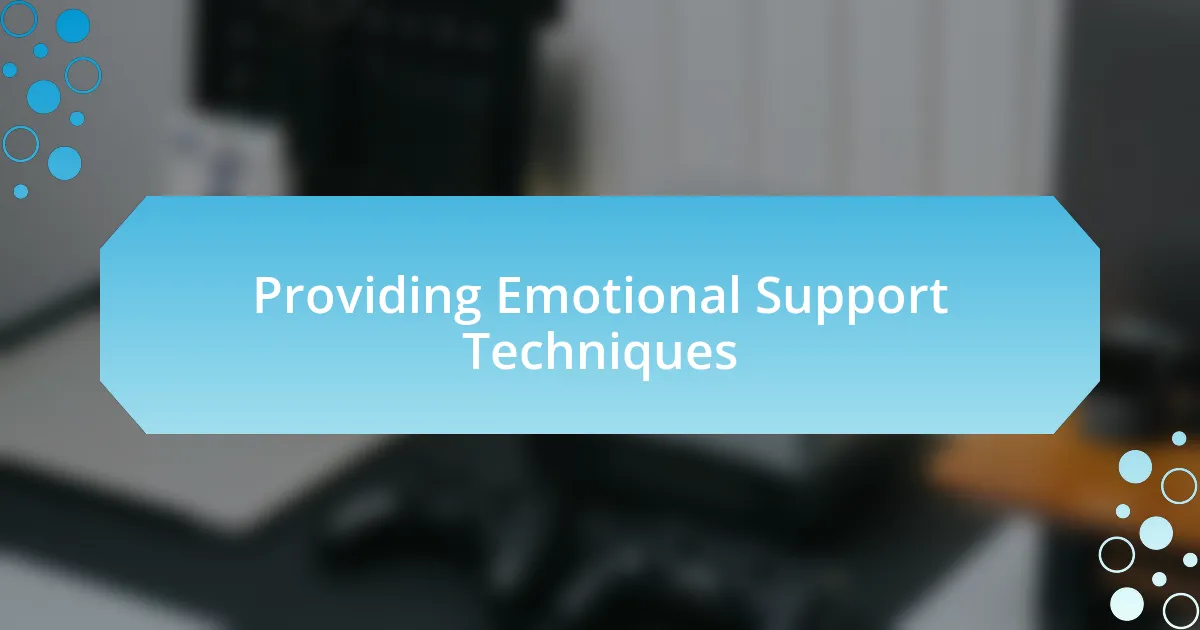
Providing Emotional Support Techniques
Providing emotional support is essential during recovery, and I found that actively listening to my friend was one of the most effective techniques. I remember sitting with them in a quiet café, where I made sure to give my full attention, nodding and reflecting on what they shared. This simple act of validation helped them feel heard and understood, which is often the first step toward healing.
Additionally, I discovered the value of sharing positive affirmations. I would send my friend small notes or texts reminding them of their strengths and past achievements. In one instance, I recalled a challenging time they overcame in the past, emphasizing their resilience. This practice not only uplifted their spirits but also reinforced the notion that they could navigate their current struggles, reminding them they weren’t alone in this journey.
Another technique that proved beneficial was encouraging my friend to express their feelings through creative outlets. We often engaged in activities like painting or journaling together. I vividly recall a day when they poured their emotions onto a canvas, and it was incredible to witness how visibly lighter they felt afterward. These activities not only provided a diversion but also served as a constructive way to process complex emotions.
| Technique | Description |
|---|---|
| Active Listening | Engaging fully in conversations, reflecting feelings, and providing validation. |
| Positive Affirmations | Sending encouraging messages that bolster self-esteem and remind the person of their strengths. |
| Creative Expression | Using art or journaling to channel emotions and facilitate healing. |
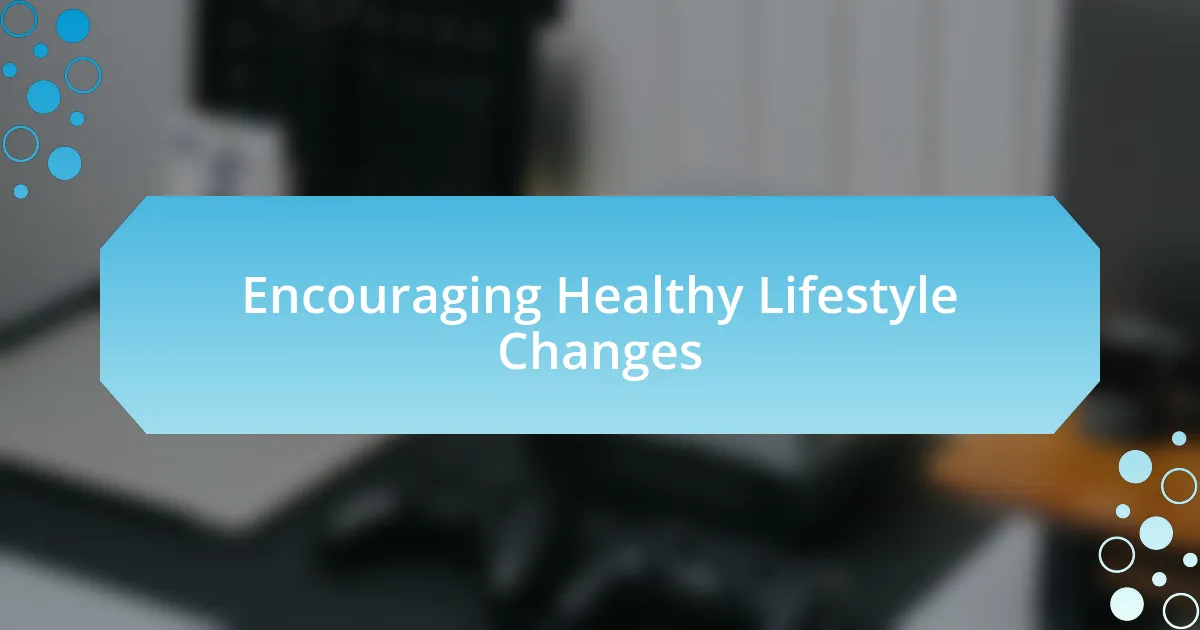
Encouraging Healthy Lifestyle Changes
Making healthy lifestyle changes can often feel overwhelming, but I found that breaking it down into manageable steps was key for my friend. I suggested simple alterations, like swapping out sugary snacks for fruits or even taking short walks after meals. I remember the first time we took a stroll together after dinner; it seemed trivial at the time, but those few minutes of movement sparked something in them—a sense of accomplishment and energy that was contagious.
I also realized the power of cooking meals together as a way to encourage healthier eating habits. We dove into a food prep session, exploring new recipes that were tasty yet packed with nutrition. As we chopped vegetables and experimented with spices, my friend joked about being a “professional chef” in no time. The laughter we shared made the experience enjoyable, transforming what could have been seen as a chore into a fun bonding activity.
One day, we even created a small challenge for ourselves: a week of new workouts. We couldn’t stop laughing when we attempted yoga for the first time and struggled to maintain balance. That week wasn’t just about fitness; it was about building a sense of community in our efforts to improve our well-being together. There was something special in those moments—the realization that choosing a healthier path doesn’t have to be all serious; it can be joyful and filled with camaraderie.
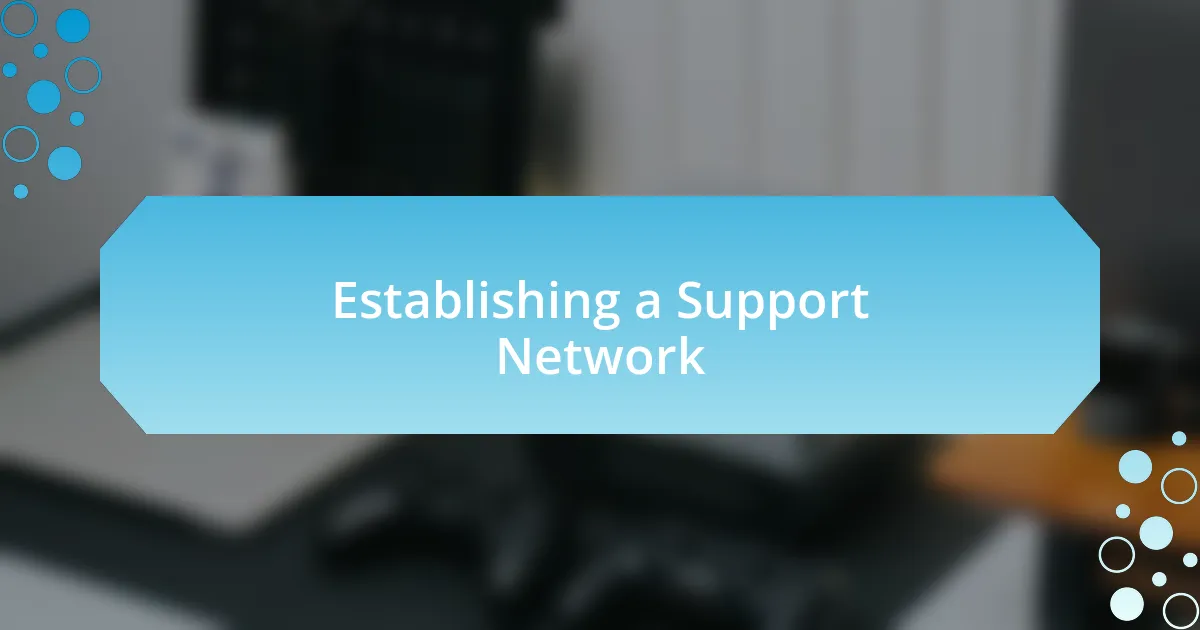
Establishing a Support Network
Building a support network is essential for anyone on the path to recovery. I vividly recall how inviting mutual friends into the process made a significant difference for my friend. We organized regular get-togethers, each reflecting a different aspect of support—sometimes it was a movie night to unwind, while other times it was simply a coffee catch-up. Those moments fostered a sense of belonging that was incredibly uplifting.
Moreover, I learned to encourage my friend to lean on family as well—something I found often gets overlooked. One evening, we set up a family dinner, and the warmth radiating from that gathering was palpable. The laughter, shared stories, and loving encouragement truly reinforced the idea that recovery isn’t a solo journey; it’s about embracing the collective strength of those around you.
It’s fascinating how vulnerability can be a bridge to connection. Sharing our feelings openly with each other sparked deeper conversations. I remember asking my friend, “What do you need from me?” It was a simple question, but it opened the door to honest discussions about fears and aspirations, ultimately strengthening our bond. Those moments taught me that a solid support network thrives on trust and openness, making the road ahead feel less daunting.
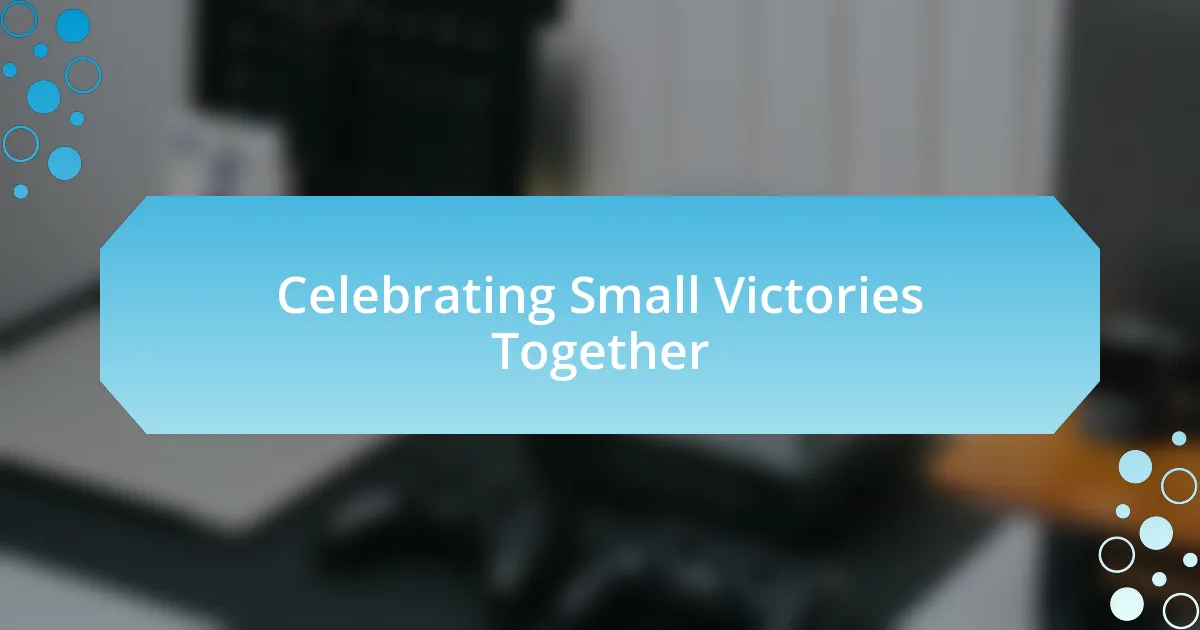
Celebrating Small Victories Together
As our journey continued, I realized how powerful it was to celebrate the small wins. I remember the day my friend successfully completed a challenging task they had been dreading. We took the time to share a simple celebratory dinner, and in that moment, I felt an undeniable joy watching my friend’s smile grow brighter. It made me wonder—how often do we overlook small victories in our lives?
Finding joy in these milestones became a beautiful ritual for us. After each achievement, we would jot down our reflections in a shared journal. I can still picture us sitting across from each other, laughing as we flipped through pages filled with little triumphs. It wasn’t just about the recovery process; it became a source of motivation and hope that kept pushing us forward.
There’s something really special about recognizing progress, no matter how minor it may seem. I remember one morning when my friend mentioned feeling slightly more energetic. We decided to take a short walk around the neighborhood to celebrate that newfound energy. It struck me then—each small victory was like a stepping stone, leading us further along the path to healing together. What little achievements have you celebrated recently? Those moments can truly make a difference.
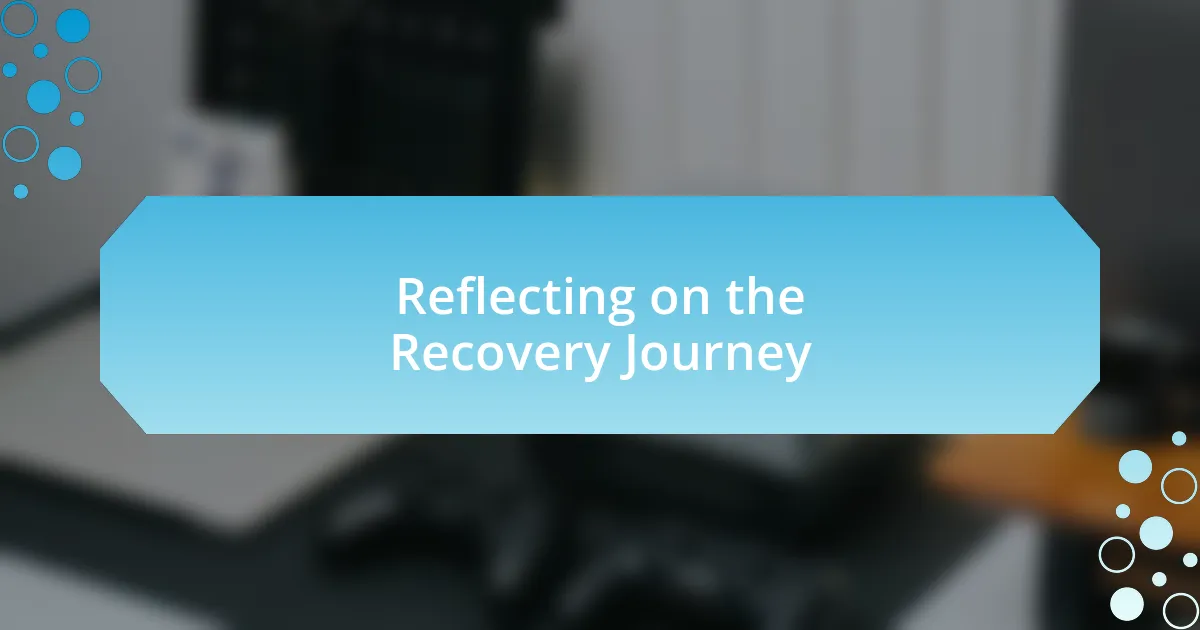
Reflecting on the Recovery Journey
Reflecting on the recovery journey often brings a mix of emotions. I remember sitting with my friend one quiet evening, discussing how far they had come. It was in that moment, under the soft glow of the lamp, that I truly understood the depth of their struggle and the courage it took to face each day anew.
I found it striking how reflections stirred up both gratitude and pain. There were days filled with laughter and breakthroughs, contrasted by moments when the weight of past struggles felt overwhelming. I recall one day my friend expressed frustration over a setback, and it led us into a heartfelt conversation about resilience. How do we define resilience in the face of adversity? For us, it became about acknowledging those tough emotions rather than burying them.
This journey of reflection revealed a tapestry of growth. As we revisited old challenges, it became evident that they were not just obstacles, but parts of a larger picture—pieces of their story that shaped who they were becoming. I couldn’t help but think, how powerful it is to recognize these threads that connect the highs and lows of recovery. Each reflection was a reminder that healing isn’t linear; it unfolds in surprising ways, teaching us valuable lessons along the way.


